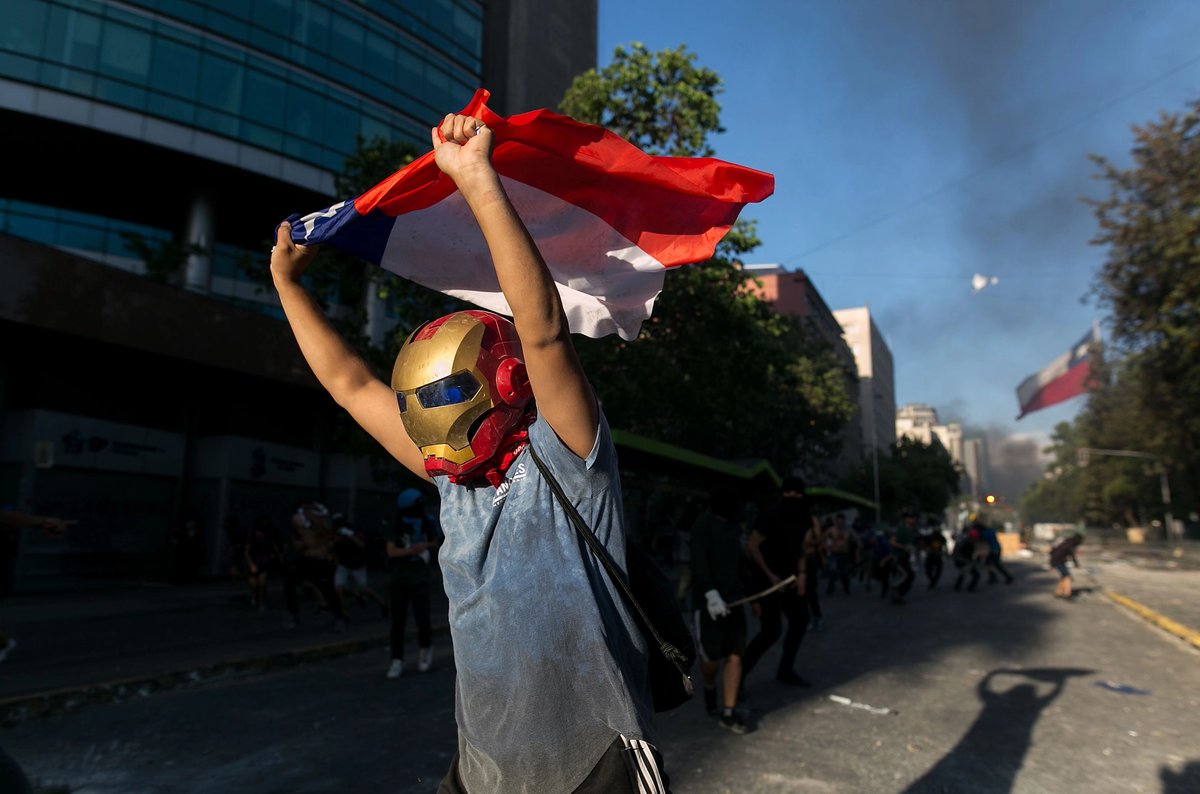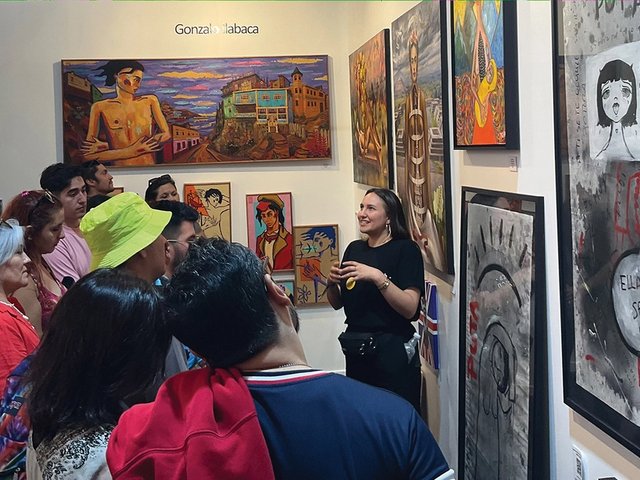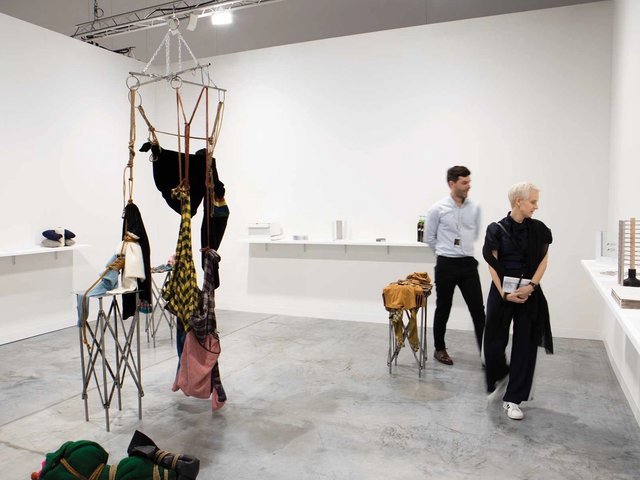The Contemporary Art Fair of Chile (Chaco) has suspended its 2019 edition in the wake of nearly two weeks of violent clashes between police and protesters in Santiago over social services and public benefits, which recently led the country’s president to declare a state of emergency. Originally set to open on 21 November, the 11th edition of the fair has been rescheduled for March 2020.
Chaco’s executive director, Elodie Fulton, says in a statement that, although Chile’s political situation could be “normalised” by November, the organisation cannot guarantee safe conditions or “give certainty of the national panorama to international galleries” that would need to travel and ship work to Santiago ahead of the fair. Moreover, Fulton expressed her desire for art to “become the meeting space that Chile needs” during the current social upheaval.
Artists and galleries in Chile—and beyond—have in turn been mobilising not only to secure themselves and their work, but also to support protesters.
“We’ve had to close early for safety reasons, our gallery staff are our priority right now,” says Javiera Garcia-Huidobro, the director of Santiago’s Aninat gallery. “I don’t mind losing out on sales. The artists that we work with, like many Chilean artists, are very political in their art and messages. It would be contradictory for us to be against these protests and represent the artists that we do.”
For nearly two weeks, there has been widespread violence, arson and looting by demonstrators across Santiago after a subway fare increase on 6 October prompted public outrage, sparking the largest civil uprising since the fall of the dictator Augusto Pinochet in 1990. The price of tickets, dictated by the private company Metro de Santiago, rose by as much as 830 pesos (about $1.15) during peak hours—or around around 17% of a minimum-wage worker’s earnings. The fare hike came just weeks after the government announced a 10% increase in electricity fees—another public utility managed by a private entity.
“Everyone is tired of big companies colluding and raising the prices,” says Juan Pablo Vergara, the co-director of Santiago Gallery Weekend, which shut down last Friday to not only protect gallery workers, but “also because it is also not a time to be celebrating right now—it is a time to be reflecting”.
Meanwhile, the artist-run space Sagrada Mercancía is running an online campaign to raise money for basic but essential supplies while acting as a safe space for protesters.
Peaceful protests, largely led by high-school students immediately after the fare hike, started with fare evasion and demonstrations in the subway stations, soon expanding to widespread marches across the city. The demonstrations turned dangerous on 18 October, with many citizens stating that police and military escalated the protests into violence through the use of unnecessary force. Early on, Chilean President Sebastián Piñera said that the authorities were “at war” with those marching, declaring a state of emergency and imposing a military-enforced curfew over the weekend. On Monday, he replaced eight cabinet members in an attempt to quell the unrest, but further protests ensued.
Clashes with armed authorities have sent hundreds to the hospital with gunshots, head wounds and broken bones. More than half a dozen protesters are reported as dead—although hard numbers are difficult to come by since the Chilean media is reportedly not disclosing the severity of the situation in its coverage. Many protesters are relying on social media to spread information, though some believe platforms like Facebook and Instagram may also be subject to censorship.
“What is happening in Chile [shows] how a neoliberal system can actually develop into a facist system, and that its façade of economic growth is short term and ends in a crisis like this,” says Ignacio Gatica, a Chilean artist based in New York who has been sharing protestor’s videos on his Instagram to help combat misinformation.
Deemed an “economic miracle” by American economist Milton Friedman, Chile carries Latin America’s best-rated credit thanks to neoliberal reforms put in place during the dictatorship of Pinochet, which imposed a free market in the country with the support of the US government. The reforms also created extensive wealth disparity and a degrading quality of life for many, which lies at the root of the Chilean protesters’ anger, according to Kerry Doran, a US curator and writer currently based in Buenos Aires, Argentina. She is now working with other Latin American artists to collect and disseminate social media posts from Chilean civilians before they are flagged by Chilean authorities.
“Crimes against humanity are being perpetrated against peaceful citizens by their own elected leaders,” she says. “We need to take control of the narrative, to ensure that history reflects the severity of what is happening and that these stories are known beyond Latin America.”




